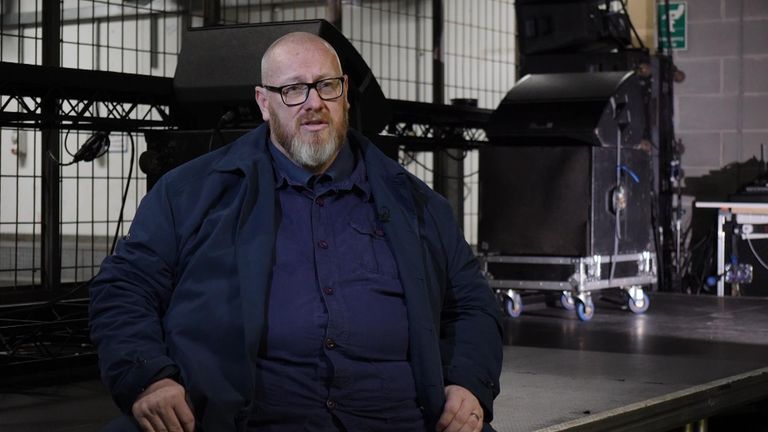Without urgent intervention the UK looks set to see "the end of a clubbing era that has defined generations", according to industry experts.
Ahead of next week's autumn budget, Michael Kill, the chief executive of the Nighttime Industries Association (NTIA), has spoken to Sky News about the urgent need for government support to protect a "vital part of the UK's social fabric".
"We are witnessing the systematic dismantling of the nighttime economy. Our industry is not just about entertainment; it's about identity, community, and the economy," he said.
New research by the NTIA shows that in the past four years the UK has lost 37% of its clubs, which works out at about 10 clubs closing each month.
Not only has the cost of living meant more of us are going out less, the nighttime industries have had to grapple with rising operational costs, with one recent NTIA flash poll of 500 businesses finding that seven out of 10 are either barely breaking even or operating at a loss.
The NTIA says things are so bleak that if the current rate of closures continues then on 31 December 2029 we will have no more clubs in the UK.
As Mr Kill explains: "The concern is that as we move towards the budget, the narrative that's coming out is quite dour….looking at alcohol duty and potentially things like the ban on smoking…all of those things are quite onerous and cost heavy."
"We need the government to give us a bit of a break and the financial headroom to be able to allow businesses to survive."

Read more from Sky News
Oasis announce tour special guest
Japanese tidying guru: 'I was never perfect'
Zayn Malik postpones US tour after bandmate's death
At a tough time for the club scene reinvention is proving to be key.
Actor and music lover Vicky McClure has stumbled across a way to get people back dancing - running a successful daytime clubbing event with her husband called Day Fever.
"I don't think we've reinvented the wheel but I think what we've captured is something that everybody really wants," McClure told Sky News.
So far the touring events have sold out, which McClure puts down to people having "very different lives, different shifts and with childcare".


While some owners struggle to keep permanent venues afloat, others are finding more success working in "meanwhile spaces".
Simeon Aldred is the co-founder and head of strategy at Broadwick Live, a company responsible for the club Drumsheds, one of the world's largest nightclubs that's currently running on the site of Tottenham's old Ikea in north London.
Swapping Swedish meatballs for sound systems, flatpacks for phat beats, the vast furniture warehouse is hosting some of the biggest names in dance music.
"I'd imagine [this] is temporary," says Mr Aldred. "Our landowner is looking to do housing with Enfield council…London needs more houses.
"That gap between old and new development…working in meanwhile spaces….it really helps landlords and places to experiment with size and scale, does food work there? Does music work there? How can [they] take that into permanence in some form?"
Mr Aldred says one of their aims is to prove how "culture can work within a masterplan" of community redevelopment.
"Linking into the community is really, really important to create that resilience," he insists.
Of course, reinvention can only do so much. With an average of three clubs closing each week, if we really want to preserve the UK club scene, rather than showing off about our former dancing days, what UK clubs could really do with is a few more of us showing up.
Disclaimer: The copyright of this article belongs to the original author. Reposting this article is solely for the purpose of information dissemination and does not constitute any investment advice. If there is any infringement, please contact us immediately. We will make corrections or deletions as necessary. Thank you.



